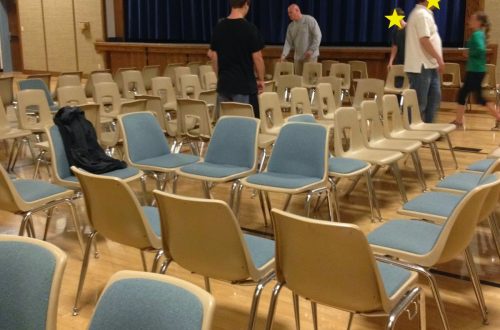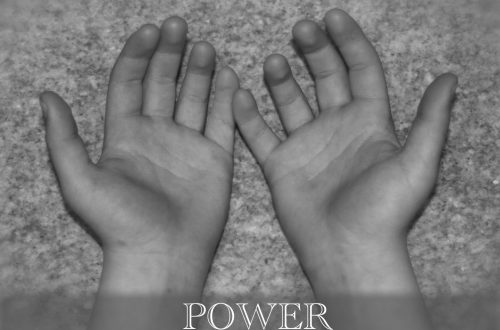Prepare Every Needful Thing – Back to School Mutual activity
I’m a new young women’s president, and I’m planning mutual this week so that I can learn to do it in order to teach the young women to do it later. This week it’s class activities and I’m teaching Laurels. Since school started two weeks ago, I’m doing a class on organization that I’m calling Prepare Every Needful thing.
We will discuss as a group some of the things that are stressful in our lives and then talk about ways to prioritize and get organized. I’m not talking about covering shoeboxes with gift wrap for holding pencils here; I’m talking about goal-setting and habits that will help us use our time most effectively to serve the Lord. I’m hopeful our discussion will help me get to know the girls a little bit better and that we can refocus ourselves on the things that matter most in life, despite its many distractions.
Materials:
The old young women manual was super helpful for this short lesson. I used Avoiding Crisis Living from YW3:44. I also printed out copies of this handout found at Sugar Doodle from the old manual to help us stay on task through the four steps we will cover.
As a visual aid I’m bringing my tablet to show my calendar, which is synced up with calendars from my husband and children and the calendar at LDS tools. I’m also using a handout based on the graph of how creative people use their time to show that there is no “right” way to organize. It only matters that you do organize.
Lesson Outline:
I hope this is helpful to you. It makes sense to me 🙂 I’m shooting for a 30-35 minute lesson here:
Organize Every Needful Thing
“After dinner with her family, Helen read through the term paper once more, and after correcting two typing errors, placed it in a yellow plastic cover. ‘Twenty-seven pages,’ she thought. ‘That’s the longest paper I hope I ever have to do. I sure hope Mr. Gillam is interested in this subject.’ Helen put the paper with her other schoolwork. ‘I’m glad I started on it when I did, or I’d have never had it ready to turn in tomorrow,’ she thought. ‘That man really expects a lot of us seniors.’ With her homework finished, Helen went downstairs and watched a TV show with her little brother before going to bed.
“Three houses down the street, Paula, another member of Mr. Gillam’s current affairs class, had gulped down a few bites of mom’s homemade lasagna, one of her favorite meals, and said, ‘Sorry, mom, I’ve just got to get that paper started—and finished!’ and hurried to her room. Her study desk was covered with notecards, most of them obviously written in haste. ‘At least I got some research notes taken at the library last night, so I can type all night if I have to.’ She moved some of the cards aside to slide her typewriter into place, put a piece of paper in the machine, and looked at the first stack of cards. ‘I’ll just have to skip the first-draft stage,’ she sighed, ‘not to mention the second-draft stage. This paper has to be turned in tomorrow morning or else.’ As she started to type the one and only draft of the paper that Mr. Gillam would use to decide half of her semester grade, she wondered, ‘When will I ever learn to start sooner?’” (adapted from Ron Woods, “Taking Control of Your Life,”New Era, Sept. 1980, p. 12).
Sound familiar? So any of us like to feel panicked or unprepared? What could Paula learn from her homework crisis?
Explain that we all have been given an equal amount of time—the same twenty-four hours in a day. If we waste the hours that we have, we find ourselves feeling overwhelmed, pressured, and out of control. Life seems to be one crisis after another. We all have important responsibilities and home, school, church, and some of your may have work schedules to keep as well. You are busy, I am busy, your parents are busy, and if we are careless we can find ourselves in continual crisis, moving from one late project to the next. You can free yourselves from unnecessary anxiety by organizing yourselves.
1) Establish Priorities: How are you establishing priorities in your life? Does the way you spend your time show what matters to you?
2) Eliminate unimportant things: Read D&C 88:119. What does needful mean? What things are needful in your life?
3) Improve work and study habits: We read about Paula and Helen already. Show handout that shows how many effective people have organized their time. Read quotes. It matters less how you organize your time than that you do it. Show calendar/ LDS tools app. Talk about sleep (many general authorities keep a notebook beside bed to help them make lists — probably helps them sleep better, avoid mind not being able to rest; also see D&C 88:124)
4) Recognize your limitations: In Mosiah 4, King Benjamin is describing the responsibility we have to treat others with kindness, but there are so many needs and so many good things to do! He gives his people a great piece of advice in v27. How does King Benjamin’s teaching apply to your lives?




